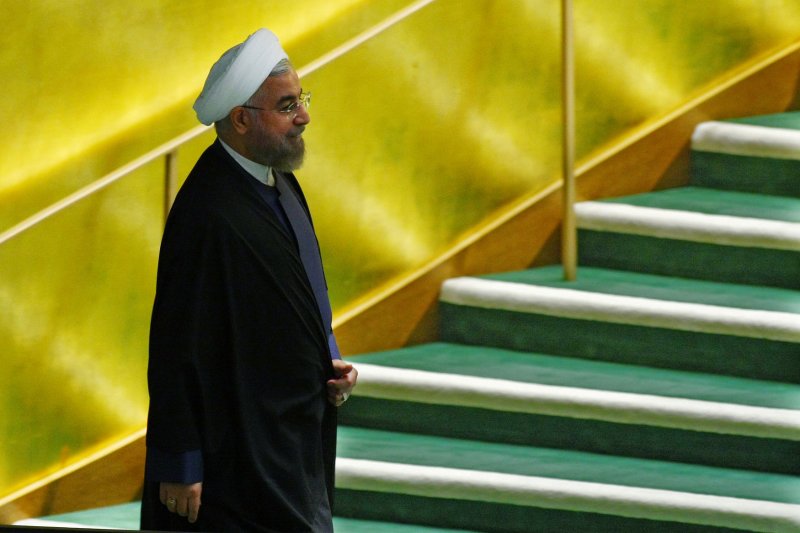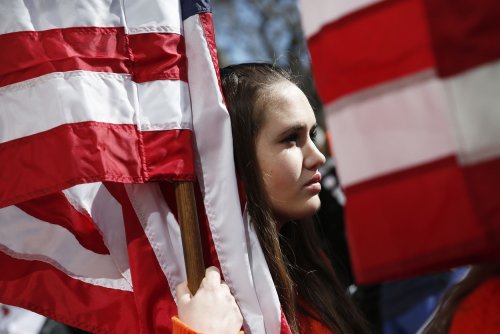Iranian President Hassan Rouhani to press for a renewal of talks on a bilateral gas pipeline planned for Pakistan during two-day state visit to Islamabad. File photo by Monika Graff/UPI |
License Photo
ISLAMABAD, March 25 (UPI) -- Cooperation extending into the energy sector is high on the agenda for a two-day state visit to Pakistan, Iranian President Hassan Rouhani said Friday.
Rouhani led a delegation of political and economic dignitaries on a two-day visit to Pakistan. Before leaving, the president said at a press conference in Tehran ties in the energy sector could be expanded now that sanctions pressures are easing on the Islamic republic.
"Several agreements have been finalized in this respect," he said. "They will expand to include cooperation in border trade, transit, and security."
The visit is aimed at strengthening bilateral ties that are evolving for Iran with the agreement last year on a multilateral program aimed at easing nuclear weapon concerns. Pakistani Prime Minister Nawaz Sharif visited Tehran in January as sanctions pressures started to ease as a result of the nuclear deal.
Rouhani is expected to press for a resumption of talks related to a natural gas pipeline planned between both countries. Pakistani Foreign Office spokesman Nafeez Zakaria said the project was important for the country, but sanctions in the past had presented major obstacles.
"Now as sanctions have been lifted, all such projects will come under discussion during the talks between the leadership of the two countries," he said.
Oliver Coleman, deputy head of Asia programs at analytical firm Verisk Maplecroft, said last year that while both sides of the pipeline have lauded its benefits, it won't address the long-term issue completely.
Even if the pipeline is completed in Pakistan, Coleman said national distribution networks likely wouldn't be able to handle the additional volumes of natural gas coming from Iran.
Islamabad has worked with its counterparts in China on the construction of a liquefied natural gas terminal and associated pipeline infrastructure at the port city of Gwadar near the Iranian border. The facility, the country's first, went into service in May 2015.
Pakistan consumes most of the natural gas it produces and the country has faced chronic energy shortages.















